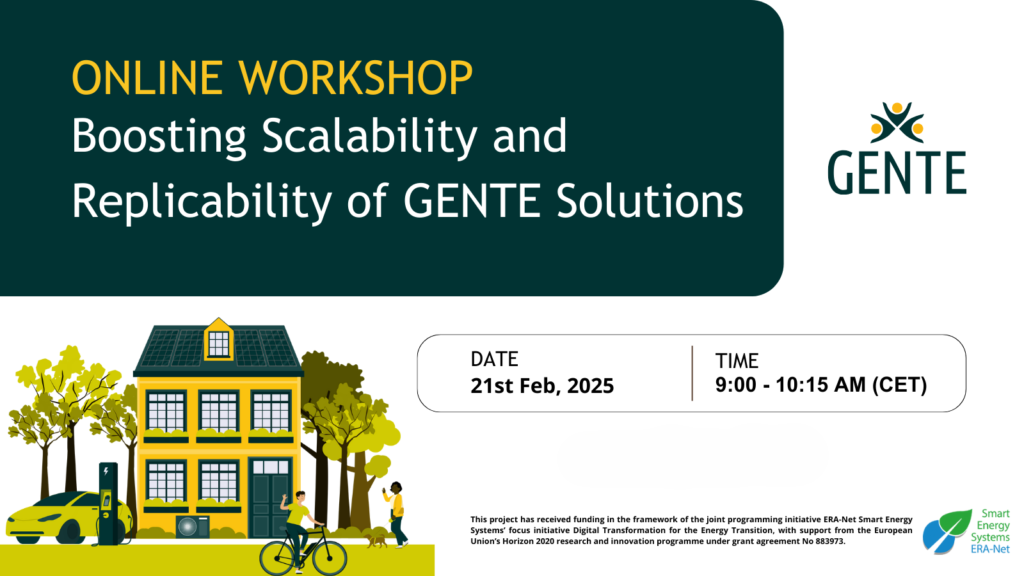On February 21st 2025, GENTE consortium member R2M organized and ran an online workshop with presentations by GENTE team members and open discussion with the audience about the ability to scale and replicate the technical and organizational solutions the GENTE Project has been developing.
First up was GENTE Project Manager Roman Lötscher from HSLU providing an overview of the project.
Next were GENTE researchers Josephine Harris from HSLU and Laura Zabala from R2M with an introduction to one of GENTE’s key exploitable results – the Toolkit. The audience for and methodology used to create the Toolkit were presented, followed by a walkthrough of the Toolkit’s structure and presentation of use cases that show how the Toolkit can be used. The Scalability & Replicability Analysis (SRA) methodology and results from application to the Toolkit were shown, finishing off with a look into the potential market impact and business expansion the Toolkit could enable.
Test case results from two of GENTE’s demo sites were presented next. Roman showed results from the Swiss community Am Aawasser. Three objectives were tested: CO2 emissions reduction, self-consumption optimization, and peak load reduction. All three met project KPI requirements. For the Swedish demo site HSB Living Lab, GENTE researcher David Steen from Chalmers University presented the setup and results from three test case objectives: CO2 emissions reduction, reduction in energy cost, and increase in self-sufficiency. Again, all three met project KPI requirements. Details of the values achieved for each test case objective will be available with the release of the Deliverable 9.2 report in April 2025.
To round off the workshop, a lively discussion between team members and the audience. Questions and comments touched on:
- perspectives on organizational persistence of energy communities (ECs) due to their fundamental volunteer-based and long-term nature
- professionalization and commercialization of ECs
- business models for ECs and the potentially thin margins involved
- regional variations in approaches to ECs
- grid services ECs can provide
- collective self-consumption
- tax implications of different EC applications in different regions in Europe
- existence of frameworks for application of some of the EC concepts to corporations
- EU recognition of two EC types: Renewable Energy Communities (RECs) and Citizen Energy Communities (CECs)
- application of optimization tools created within the GENTE project to other energy systems
- making sure not to forget about the beneficiaries (the people), alongside economic and technical aspects, when planning and operating an EC
- cross-functional set of things and people needed for application of the EC concept
- QUBE: Quartierbezogene erneuerbare Energien and Ein Quartier packt die Energiewende an
- ECOM: ECom4Future
- SWEET Lantern: WP8 Energy communities and cooperatives
The GENTE team would like to thank everyone who attended the workshop and participated in the discussion, with special thanks to R2M for organizing.
The Deliverable 9.2 report with test case results from our demo sites will be released in April 2025 and the Toolkit will be made publicly available soon after.
